Forget the weather and the economy, traffic is the talk of the town in Tauranga.
'Bloody hell, what is it with all the traffic in Tauranga?” asked one resident this month after it seemed like the whole city was brought to a standstill by a minor early morning crash in Mt Maunganui.
Commuters are frustrated by increasing traffic jams, seen as 'worse than Auckland”, with 77 percent of city dwellers citing congestion as a big problem, compared to just 40 percent in Auckland, 25 percent in Wellington, and 19 percent in Christchurch.
Roadworks on one state highway have forced people to move house, miss flights and hospital appointments, and even consider commuting to work on jetskis and golf carts.
Business owner Glenn Wilson missed his son's specialist hospital appointment that he'd waited six months for because it took two hours to drive a 12km route that should take ten minutes.
Another day he missed a 6.30am flight, despite leaving his Ōmokoroa home at 4.45am. His worker Jony leaves his mum's house at 6.20am to travel just 7.5km to the office. It takes him more than an hour to get to work.
'It's worse than Auckland,” he says, 'Ludicrous.
'If you want to get somewhere on time you have to leave the night before. It's having a massive impact on people's businesses, lives and health. Everyone is fed up,” Wilson says.
Traffic is at a standstill on State Highway 29 on the outskirts of Tauranga. Video: Supplied/Stuff.
Tauranga teacher Ebony Kahukura is so over a two-hour drive to school on traffic-clogged State Highway 2 that she's put her house up to rent.
'This will be at a loss to me as the rent will not cover mortgage payments and rentals in town are dearer than here and the houses of poorer quality. To be honest it's shit. I made huge sacrifice to get myself and my kids out here, bought an electric car to help balance out the travel cost and while it's a beautiful community, the traffic is just too much for my kids.”
She's had to leave home with her two young children at 6am, getting them changed in the car and feeding them breakfast at school.
'By the time they start their school day they're hungry and after school very tired ... very long days for five and seven-year-olds, plus afternoon traffic on the way home ... no end in sight with new roads planned for 2028 and that's years of roadworks.”
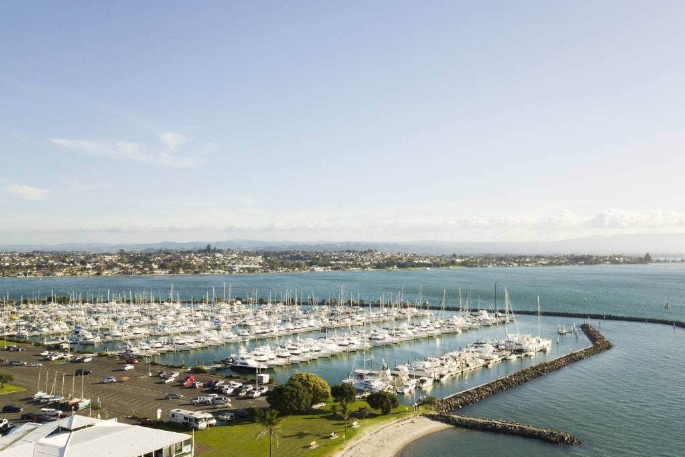 Freight heading to the port of Tauranga adds to congestion, but the solution is not more roads, Waka Kotahi says. Photo: Christel Yardley/Stuff.
Freight heading to the port of Tauranga adds to congestion, but the solution is not more roads, Waka Kotahi says. Photo: Christel Yardley/Stuff.
Nick Turner considered hopping on his jetski after it took him one and a half hours to get to work in the Mount.
'It's impractical for me where I work. If I worked at the port I'd give it some thought and would only take 10 minutes to shoot across.”
A Government worker who Stuff agreed not to name has been forced to work from home to avoid a two-hour commute.
”It's terrible. Some days I feel like crying.”
A recent survey comparing Tauranga to seven other cities in Aotearoa revealed 77 percent of residents considered traffic congestion 'a big problem”, and 97 percent think it's a problem.
Tauranga residents were the least frequent users of public transport in New Zealand in the survey, and viewed it least favourably.
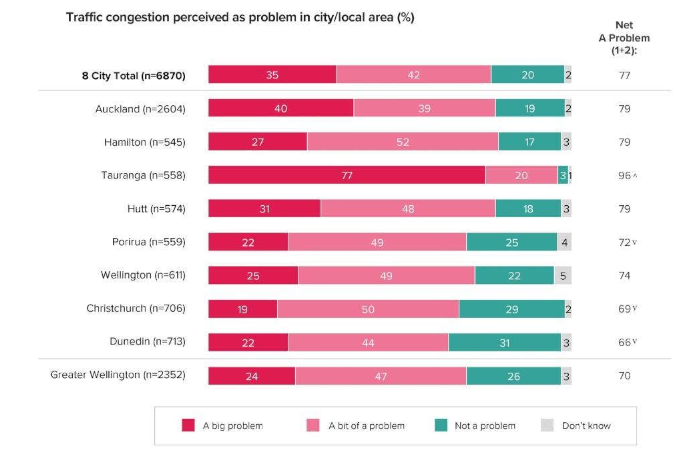
Traffic congestion was seen as more of a problem in Tauranga than other cities, according to a 2022 Quality of Life survey. Image: Supplied/Stuff.
By 2050 the western Bay of Plenty is projected to be home to 258,000 people, which creates one million transport movements per day, according to transport agency Waka Kotahi.
Jess Andrew, regional manager at Waka Kotahi, says there were already 'pinch points” in Tauranga, but more roads were not the answer.
'We need solutions to cater for growth in the western Bay of Plenty because we don't have the money or space to build more roads.
'The western Bay of Plenty is expanding faster than anywhere in Aotearoa New Zealand, and the topography of the region contributes to the pressure the growing population puts on roading infrastructure.”
Highways such as SH2 from Ōmokoroa to Tauranga were once rural roads, but now carry freight and commuters, with an increase of more than 6000 vehicles per day added to this corridor in the last 10 years.
The main road in from the west, SH29 has seen a 64 percent increase in vehicles per day over the last ten years.
Leaving the car at home is an option, says Andrew.
'By providing better infrastructure for walking, cycling and public transport, we can help encourage other ways of travelling that are safe and convenient.”
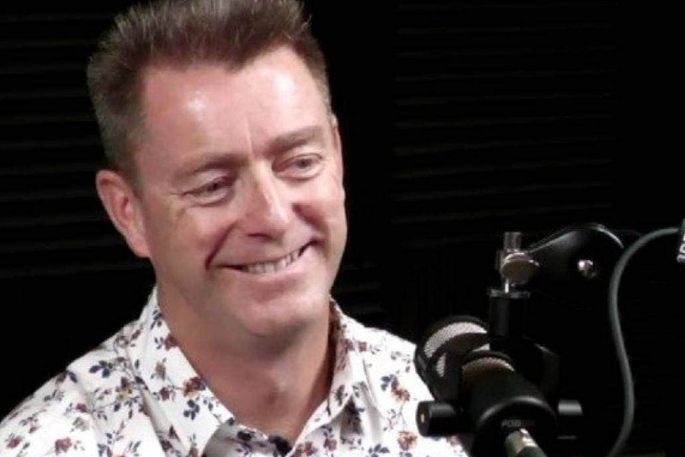 Tauranga City Council transport director Brendan Bisley. Photo: Buzzworthy.
Tauranga City Council transport director Brendan Bisley. Photo: Buzzworthy.
Tauranga City Council's director of transport, Brendan Bisley says Tauranga is one of the most car-dependent cities in New Zealand.
'For a lot of people - including tradespeople and businesses - using a private vehicle is a necessity, so we're targeting the 10 to 15 percent of the population who have a choice to walk, cycle, scooter, skateboard or catch a bus. If we can get those people on to a different mode of transport, the other 85-90 per cent will have significantly less congestion and people can move around a lot better.”
Congestion is likely to remain as the population continues to grow, he says.
'There has been under-investment in our roading infrastructure over the past 15-20 years, and in that time the population has doubled ... now there are too many vehicles trying to drive across and around the city in the peak periods.”
Tauranga's geography made it difficult to accommodate its traffic.
'Tauranga has limited arterial roads due to the city being built on narrow peninsulas, so building more capacity is difficult and expensive.”
Investments, however, are on the cards with $1.4 billion to be invested in the Bay of Plenty in the 2021-24 National Land Transport Programme. Council has planned investment in roading infrastructure of $2 billion over the next 10 years.
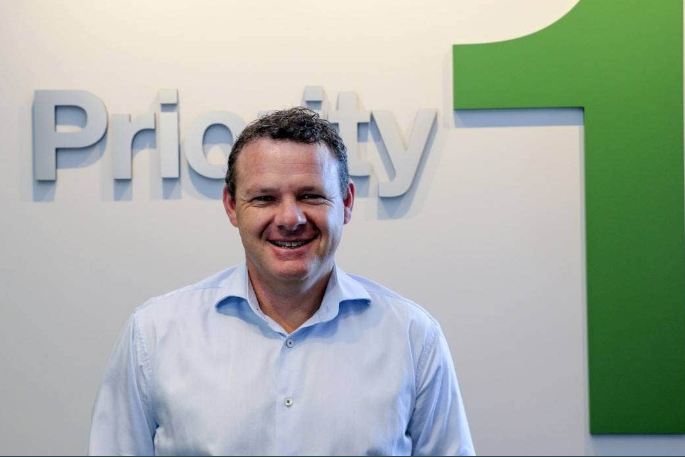 Priority One chief executive Nigel Tutt Priority One chief executive Nigel Tutt. Photo: Bruce Barnard.
Priority One chief executive Nigel Tutt Priority One chief executive Nigel Tutt. Photo: Bruce Barnard.
Infrastructure in Tauranga and the Western Bay hasn't kept up with growth, says Nigel Tutt who is chief executive of economic development organisation, Priority One.
'The population has grown 72% since the start of the century with only two major roading projects completed. Alongside congestion, it also has a significant effect on our ability to develop land – which leads to high house and rent prices. Our connection to the rest of Aotearoa for freight is critical too – we need to protect access to the Port of Tauranga, and to other cities in the Golden Triangle.”
Longer term planning and alternative funding models were needed, he says.
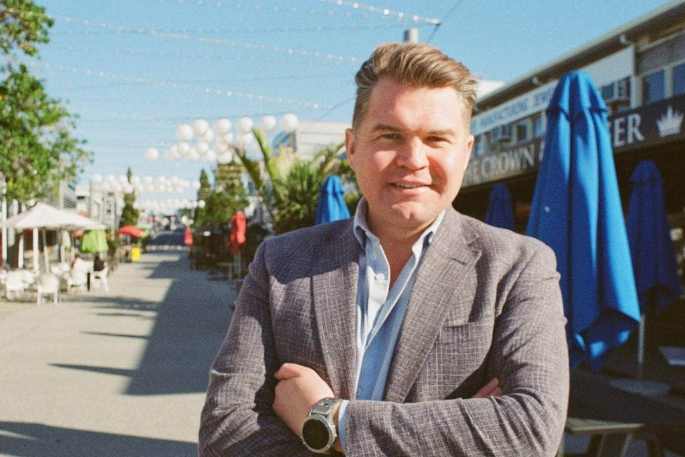
Matt Cowley: Local government has been a dumping ground for policies delegated by government. The Productivity Commission has previously called this 'unfunded mandates”. Photo: Supplied.
Tauranga has a poor record of executing roading projects, with too many agencies involved, says chief executive of Tauranga Chamber of Commerce, Matt Cowley.
'NZTA's funding only looks three years out. It provides local councils and businesses with low certainty on which state highways will receive investment. Businesses look to establish themselves in a particular area, then the next government changes policies and cancels or delays major projects. The Tauranga Northern Link is a prime example.”
Traffic issues are harming the city, he says.
'Tauranga's traffic queues on our main state highways to enter the city are becoming well known for the wrong reasons. Businesses are concerned about the impact that traffic is having on employees. Buses are not a viable solution for our distributed workforce, particularly given that our economy has a lot of hands-on workers that cannot work from home.
Businesses are also experiencing increasing costs from suppliers who are charging more for the time stuck in traffic. Customers are also making purchasing decisions based on who is easier to get to.”
Empty cycle lanes were frustrating, he says.
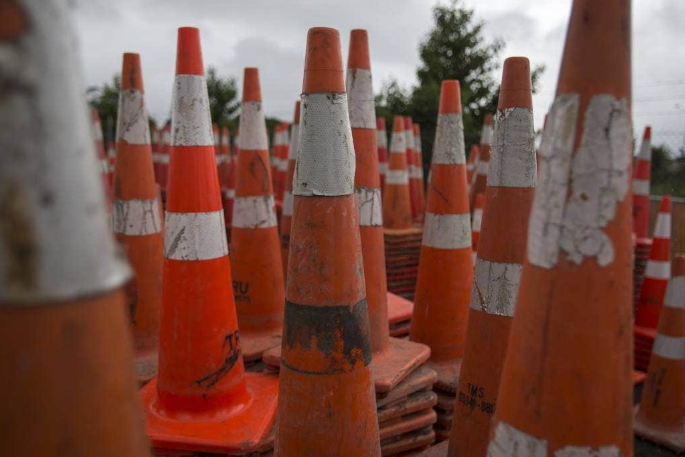 Tauranga is a road cone nightmare, with congestion negatively impacting people's lives, says the city's MP Sam Uffindell. Photo: David Walker/Stuff.
Tauranga is a road cone nightmare, with congestion negatively impacting people's lives, says the city's MP Sam Uffindell. Photo: David Walker/Stuff.
'Tolling road users to fund bus and cycle lanes that have less than 5% of Tauranga's total trips has little support from businesses.”
This was echoed at a recent meeting about Tauranga's traffic woes held by MP Sam Uffindell and opposition transport minister Simeon Brown. The audience firmly says they did not want cycle lanes and did not want to cycle.
Tauranga's congestion was dramatically reducing people's quality of life, Uffindell says.
'It's a red cone nightmare.”

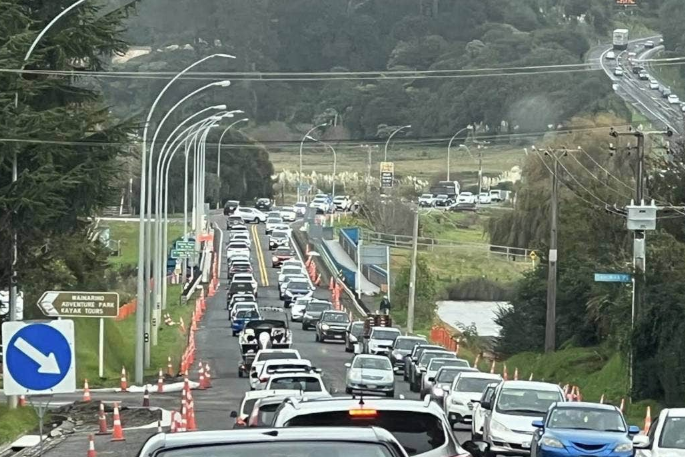

15 comments
Hahaha
Posted on 26-06-2023 17:33 | By Let's get real
There's an obvious upside to local government spending.... We're going to get a new council office with expensive harbour views and an empty civic centre. Priorities people... Priorities!!!
Funnily enough.....
Posted on 26-06-2023 18:33 | By DaveTheCynic
When you increase the population of a town without building infrastructure, you're gonna run into trouble. Three two lane roads are insufficient for the suburbs now cropping up, who's willing to take a rates hike to pay for the upgrades? As to 90% of private trips being necessary, No they're not.
Daizy
Posted on 26-06-2023 21:27 | By Davy
This labor Government stopped Nationals Roading plan for WBOP 2017 then Re looked at Simon Bridges plans in 2020 who also put $55mill in kitty to put 4 Lane highway to Omokoroa that would now be open The idiots at LTSA are saying better go by bus how will a bus be any quicker
Absolutely shocking...
Posted on 27-06-2023 06:32 | By unltd1nfantry
Gosh, I love Te Puke!!!
Craziness
Posted on 27-06-2023 08:07 | By Angels
Only a professional planner could screw up a city this bad. No armature could come close. Our planner think they are going to force more bike riding and bus taking at the whole cities nightmare. We take traffic lanes away for more bike paths . Business etc paying millions in extra time for every service calls deliveries etc etc. these so called planners need to be held accountable.
Crazy Ideas
Posted on 27-06-2023 09:13 | By Life
The comment by the TCC Director of Transport is crazy - we don't live in Holland / Amsterdam where the topography is flat! To suggest 10-15% of people to use a hopeless Bus system, scooters or skateboards is ridiculous! Yes we don't need more roads BUT improve the roading network for SH29 and SH2 by central Govt. Improve SH29 by adopting the Waka Kotahi "Option -B" design instead of the minimal improvement. Plus continue the 4 lanes through to Omokoroa intersection. For Waka Kotahi to plan only ahead for 3 yrs, I cannot believe that they are so short sighted. Plus the $$ spent on all these cycleways where the cyclists are non- existent!
Locality choice factor
Posted on 27-06-2023 09:27 | By SonnyJim
Living 20-40km away from where you work is a choice factor.
Depressing
Posted on 27-06-2023 11:34 | By Kancho
I retired and moved here many years ago when one could go anywhere in twenty minutes or less. I have become so depressed and a near hermit as going anywhere is so difficult. I feel for working people as I can travel off peak but even that has become difficult too. Buses are pretty much unusable and still get caught up in traffic anyway. Much of what I need is on Cameron road and I don't see any improvement. Changing buses and waiting us exhausting and so time consuming a d shopping impossible. I wish I hadn't come here now but no options left now.
Golfballs
Posted on 27-06-2023 13:18 | By CliftonGuy
The Tauranga road system looks like a snake that has swallowed golfballs. The roads are first two lane, then four lane, then back to two, and back again. Every time it changes from four to two, there is a back-up. The key bridges need priority, they need to be widened and then the roads feeding them can be widened. Let's not talk about a tunnel through the Kaimais. It will be 2100 before that happens.
Passenger vans not 40 seater buses
Posted on 27-06-2023 13:26 | By Jukay
The few, 40 seater, mostly empty buses, going only once every 30 - 60 minutes, bus stops being inconveniently miles apart and going to just one hub in the town center, is an irresponsible waste of money. How do get people to work, km away, from there? Like in other countries, multiple small 12 seater vans (mini buses, people carriers etc.) should circle throughout the city and the suburbs every 10 minutes (in peak times}, and be reachable in walking distance from commuters' homes and work. There should be a network of many pre-determined routes, but no dedicated stops, i.e. commuters can hop-off and hop-on anywhere along these routes. In off-peak times, demand could be controlled via a mobile app and reflected in a higher fare charge. Consider the amount of air pollution caused due to thousands of cars, queuing on idle for hours, twice a day!
It gets worse!
Posted on 27-06-2023 14:19 | By Shadow1
Our Commissioners have managed to do something we probably thought was impossible. They have made Tauranga worse than Auckland. It’s not only the traffic, they have taken away the parking, they have destroyed Cameron Road, there is rubbish strewn around the streets, munted cars are left on the side of the road for weeks, city lawns are unkempt, weeds are sprouting everywhere, the traffic lights all need to be reset, potholes are everywhere, Devonport Road is about to become one way and is to lose another 13 carparks………. Shadow1.
Forty five minutes
Posted on 27-06-2023 16:37 | By Kancho
From Greerton library to Pyes Pa road shops today!!
@Jukay
Posted on 28-06-2023 13:22 | By morepork
Your post is sensible and well-reasoned. I have been advocating it for the last 3 years. The big Yellow buffalo buses that cannot even negotiate a roundabout on our roads, are simply traffic blockers and not fit for purpose. They should have been replaced years ago with smaller, more agile, more frequent "people carriers" as you suggest. When buses were purchased did anybody look at the roads? The only relief we are going to see is when flying cars arrive... Can you hold your breath for 30 years?
Take Some Responsibility
Posted on 28-06-2023 18:05 | By Inmediasres
If you're sitting in traffic complaining about the traffic then you ARE the problem! If you travel to work in a single occupancy vehicle, then you ARE the problem. If you drop your precious darlings at the school gate so they don't have to bear walking or meeting strangers then you most definitely ARE the problem. I bus to work. Is it easy? Not really. Is it convenient? Not really. Is it quicker? Definitely not. I spend 5 hours a week MORE commuting on the bus than if I drove my car. Why do I do it? It's better for the environment, better for our community and better for my wallet. We ALL should take some social responsibility to make our town better. Rather than just whinging about 'the way it used to be' or expecting 16-lane highways.
@inmediasres
Posted on 03-07-2023 16:18 | By morepork
I commend your action and attitude. But I wanted to defend the people you say just whinge all the time. It isn't so much about nostalgic wishing for a past, simpler time, it is more about protesting the actual actions and the cost and time of them, which is simply leading people to despair. We all know there has to be change but what we see is waste, shortsightedness, and requirement to repeat expensive actions that were not properly planned, justified, or executed. (they can't even put a frame around a bloody flower bed...). Worst of all, we have an unelected Authority deciding what will happen, and spending our money with profligacy and no recourse. You can't blame people for protesting. Nevertheless, I support your efforts and the reasons you gave for doing them. I don't have to commute daily but I have definitely restricted my car travel.
Leave a Comment
You must be logged in to make a comment.